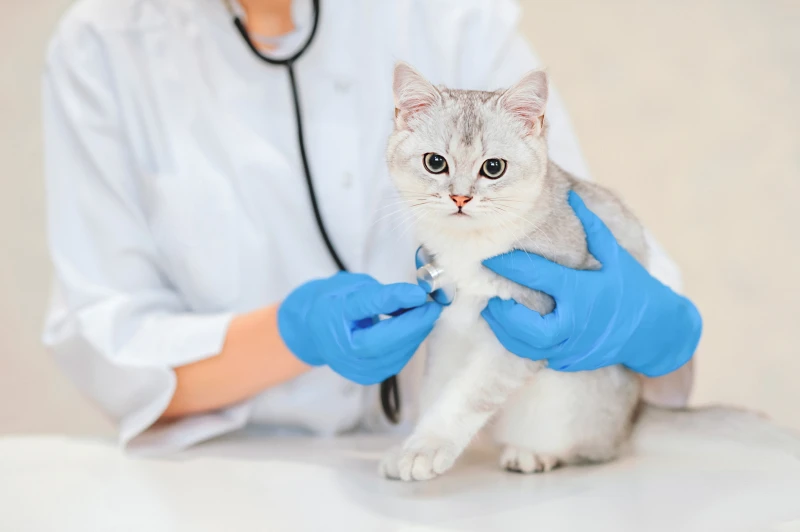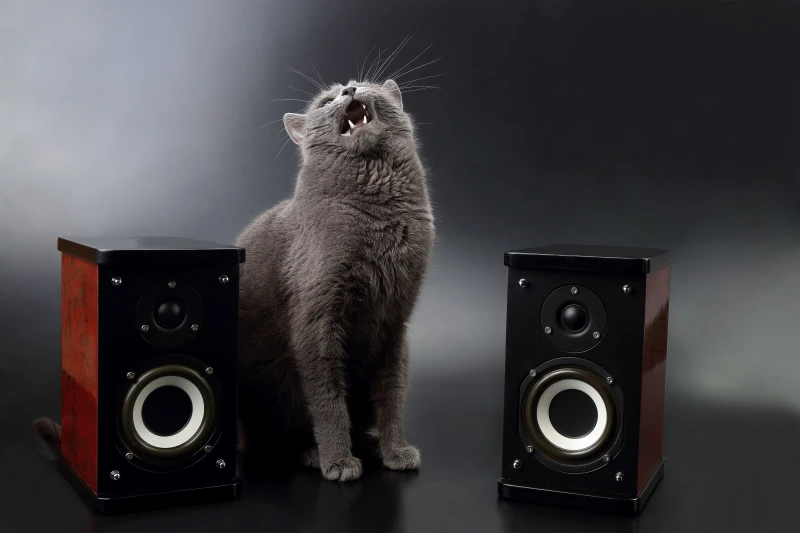People love having cats as pets, but they can get sick and need to be treated right away. This piece talks about some of the most common health issues cats have and how to find them and take good care of your cat. We talk about a lot of different health problems and how to treat them, like bad teeth, urinary tract problems, being overweight, hairballs, and parasitic diseases. People who own cats can protect their pets’ health and happiness by learning about these common health problems and taking action. This will make their lives together healthier and better.
Urinary Tract Issues
Expanded
Cats often have problems with their urine tract, such as urinary tract infections (UTIs), bladder stones, and urethral blockages. A UTI is usually caused by germs and can make you feel pain, have to go to the bathroom a lot and see blood in your urine. Minerals can build up in the bladder and cause stones, which hurt and make it hard to urinate. Urethral blockages, which happen most often in male cats and make it impossible for them to urinate, are life-threatening situations.
Identification
Watch out for signs like squirming in the litter box, going to the bathroom outside of the box, making noises while going to the bathroom, and blood in the pee. Male cats may show extra signs, such as being nervous and licking their private parts.
Addressing
Urinary tract problems need to be treated right away by a vet. Antibiotics may be used to treat infections, changes to the diet may help break up stones, or surgery may be needed for serious cases like urethral blockages.
Cat’s Dental Problems
Expanded
Periodontal disease, tooth loss, and gingivitis are all common dental problems in cats. Plaque and tartar buildup can hurt your gums, cause you to lose teeth, and make your mouth hurt. If you don’t treat dental problems, they can get worse and affect your general health.
Identification
If your pet has bad breath, gums that are swollen or bleeding, won’t eat, drools, or paws at its mouth, these could be signs.
Addressing
Tooth brushing, oral treats, and yearly checkups with the vet are all important parts of regular dental care. To get rid of plaque and tartar buildup, you may need to have your teeth cleaned by a dentist.
Obesity
Expanded
Being overweight is very bad for cats’ health because it makes them more likely to get diseases like diabetes, arthritis, and heart disease. Some of the things that can make cats fat are overfeeding, not getting enough movement and genetics.
Identification
Check your cat’s body condition score by looking at their stomach and feeling for extra fat over their ribs. When seen from above, a cat that is a healthy weight should have a clear waist.
Addressing
Keep your cat’s weight in check by limiting its portions, giving it a healthy food, and encouraging it to exercise regularly. Talk to your vet about how to help your pet lose weight in a way that works for them.
Hairballs
Expanded
Cats often get hairballs because they groom themselves and eat loose fur. This is especially true for long-haired kinds. Sometimes having a hairball is normal, but having a lot of them or ones that are too big can cause problems in the digestive system.
Identification
Check for signs like vomiting, retching without throwing up, losing your hunger, and having trouble going to the bathroom.
Addressing
To keep your cat from getting hairballs, groom it often to get rid of loose fur, feed it a high-fiber diet to help digestion, and give it hairball treatments like oral gels made from petroleum or fiber.
Flea and Tick Infestations
Expanded
Fleas and ticks are external parasites that can infest cats and spread diseases like Lyme disease and Bartonellosis. They can be itchy and make the cat uncomfortable. Fleas can also make cats anemic, especially young cats or cats that are already weak.
Identification
Make sure your cat isn’t itching, that their fur has flea dirt (black spots), that their skin is red, and that there are ticks on them.
Addressing
Flea and tick repellents that your vet recommends, like topical medicines or pills, should be used. Regular cleaning and keeping the living space clean can also help keep pests away.
Respiratory Issues
Expanded
When it comes to their lungs, cats can get asthma, upper respiratory infections (URIs), and coughing. Like asthma in people, asthma in cats causes the lungs to become inflamed and narrow, which makes it hard to breathe and causes coughing. A URI is usually caused by a virus and can show up as fever, sneezing, and runny nose.
Identification
Keep an eye out for signs like coughing, wheezing, trouble breathing, stuffy nose, and feeling tired.
Addressing
Medications like bronchodilators or antibiotics may be used to treat breathing problems, but it depends on the problem. To successfully control respiratory conditions, reduce environmental triggers, and create a stress-free living space.
Parasitic Worms
Expanded
Cats can get roundworms, hookworms, and tapeworms, which are internal parasites that can cause stomach problems, weight loss, and anemia. Kittens are especially likely to get worms, and they usually get them from their moms.
Identification
Look for signs like diarrhea, vomiting, losing weight, having a potbelly, and being able to see worms in the poop or around the anus.
Addressing
Deworming medicines should be given as directed by your vet, good hygiene should be practiced, and reinfestation can be avoided by keeping your cat inside and limiting its exposure to dirty areas.
Kidney Disease
Expanded
Chronic kidney disease (CKD) is a common problem that cats get as they age. It means that the kidneys slowly lose their ability to work. CKD is caused by getting older, having a genetic tendency, and having other health problems.
Identification
Keep an eye out for signs like more urine and thirst, losing weight, not wanting to eat, throwing up, and feeling tired.
Addressing
Managing CKD is all about keeping the kidneys working well by making changes to the food, using hydration therapy, and taking medicine to control symptoms like high blood pressure and electrolyte imbalances. Regular veterinary tracking is necessary to see how the disease is getting worse and make any necessary changes to the treatment.
Conclusion
Knowing how to spot and understand common health problems in cats is important for keeping them healthy and taking care of problems quickly. You can help make sure your cat has a happy and healthy life by being careful, giving them the right care, and taking them to the vet when they need it. Remember that the best way to deal with a cat’s health problems and help it live a good life is to find them early and take action.



